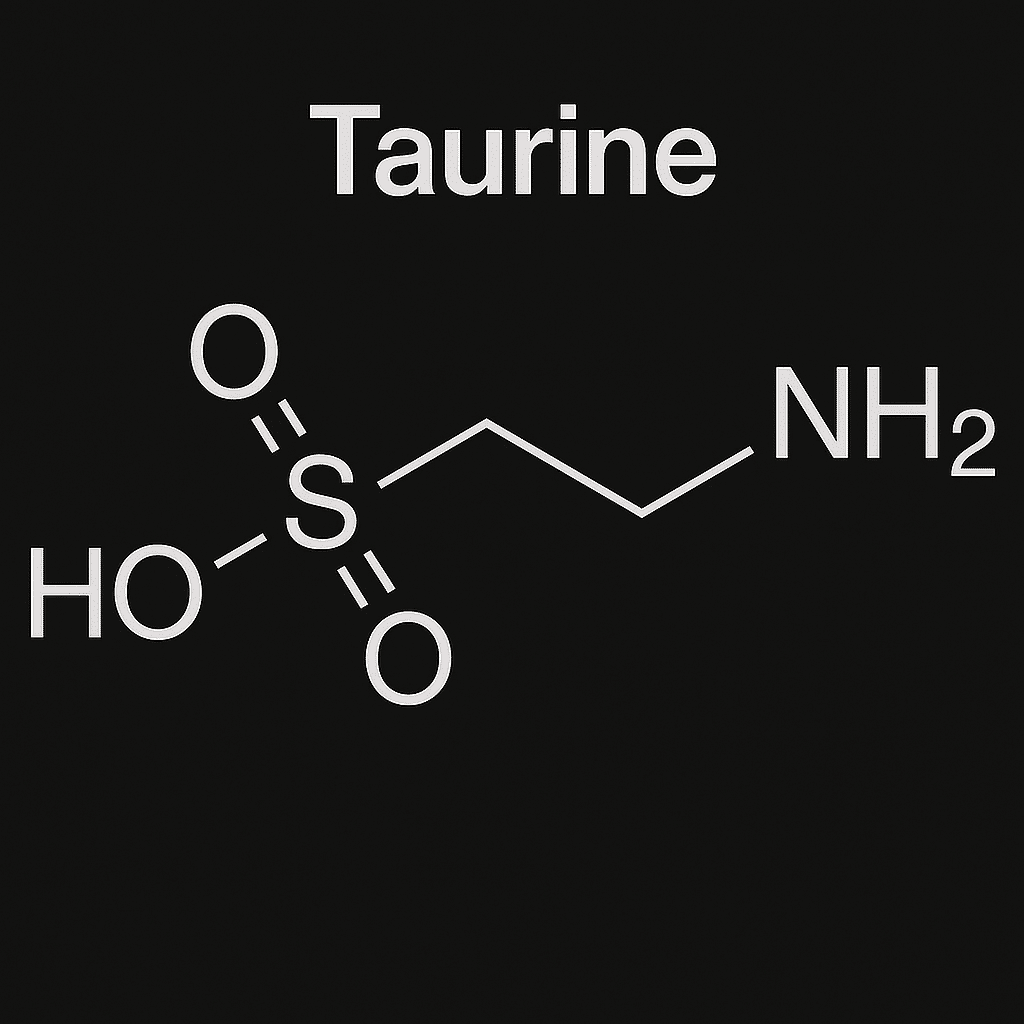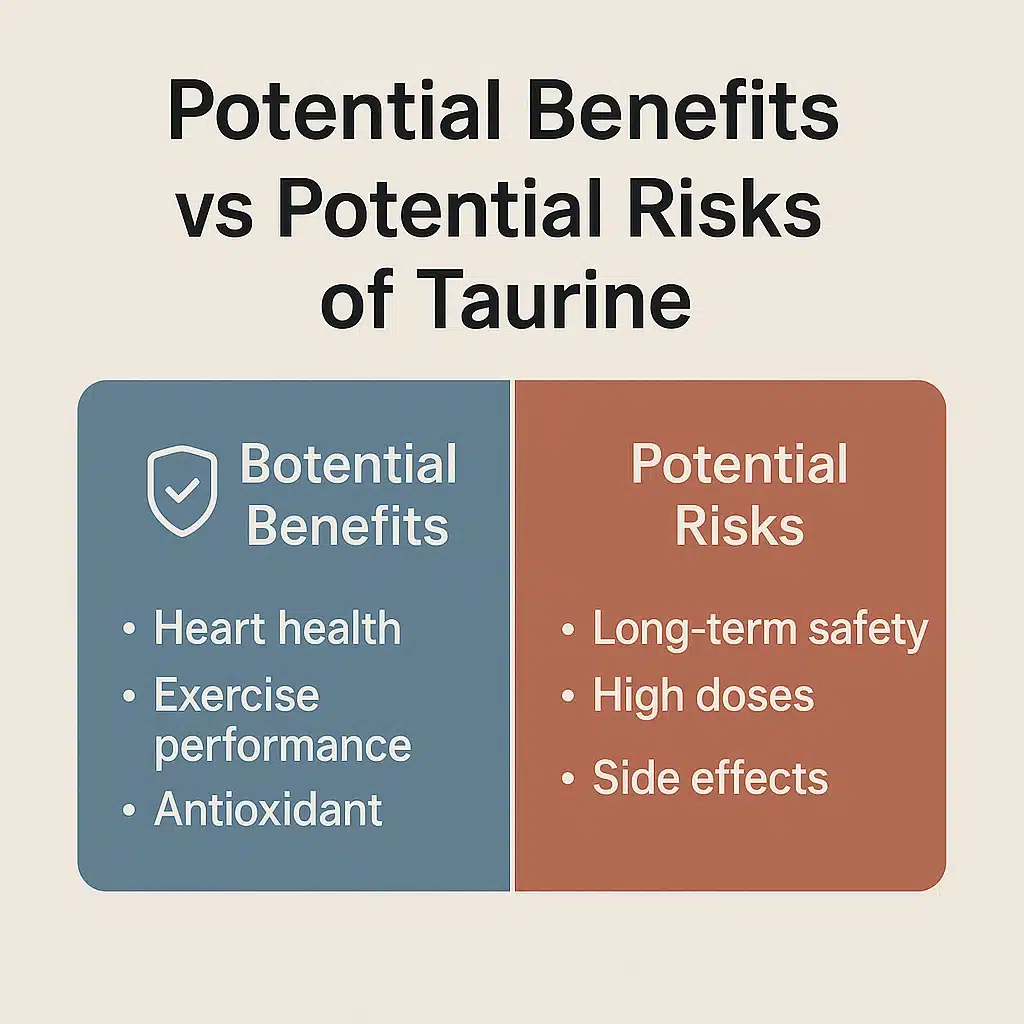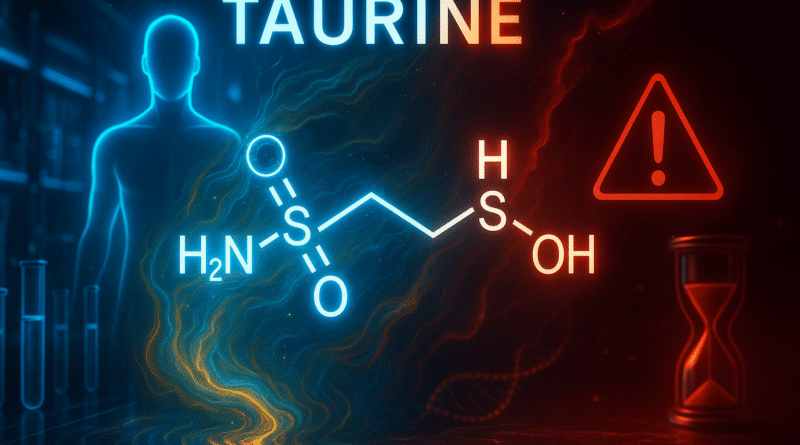Taurine and Longevity: Breakthrough Supplement or Potential Risk?
In 2023, taurine took center stage as a possible anti-aging breakthrough. A widely shared study in Science showed that taurine supplementation extended lifespan and improved health markers in mice and monkeys. Supplement brands quickly capitalized, and taurine began showing up in longevity stacks everywhere.
But by 2025, the tone had shifted.
Emerging research now suggests taurine may not be as universally beneficial as once believed. Some findings even associate it with increased tumor growth in certain animal models.
So, what is the truth?
This article breaks down what taurine does, what the latest science says about its benefits and risks, and how to approach supplementation in light of new data.
TL;DR
- Taurine supports mitochondria, nervous system function, and inflammation regulation.
- Early studies showed taurine extended lifespan in mice and improved aging markers in monkeys.
- New findings suggest taurine may support tumor progression in specific animal models.
- Long-term safety in humans remains unproven, especially at high doses.
- Low-dose taurine may offer some benefits, but caution is recommended until more data is available.
What Is Taurine?
Taurine is a sulfur-containing compound that the body produces naturally. It is also found in foods such as meat, fish, and dairy. It plays key roles in:
- Regulating electrolyte balance
- Supporting mitochondrial energy production
- Forming bile salts for digestion
- Defending against oxidative stress and inflammation
Taurine is especially concentrated in the brain, heart, and skeletal muscle. Individuals following plant-based diets tend to have lower taurine levels, since it is not naturally present in plant foods.

The 2023 Breakthrough
A 2023 study published in Science by researchers at Columbia University found that taurine levels decline with age across mice, monkeys, and humans. Supplementing taurine in middle-aged mice led to:
- Lifespan extensions of 10 to 12 percent
- Increased bone density and muscle strength
- Improved glucose tolerance and immune response
- Slower aging progression in monkeys
These results drove taurine into the spotlight as a potential longevity molecule.
🔗 Science.org – Taurine deficiency as a driver of aging
The 2025 Shift in Perspective
In early 2025, a study published in Nature reported a concerning link between taurine and leukemia progression in mice. Taurine was shown to support the survival of leukemia stem cells, especially in immunocompetent animals.
Another study in Precision Clinical Medicine found taurine may influence tumor metabolism by enhancing glycolysis, a process that fuels cancer cell growth.
While these findings are from animal models, they raise serious concerns about high-dose taurine use in humans over time.

Human Safety: What Do We Know?
To date, human research on taurine remains limited in scope and duration. Short-term studies suggest that taurine is well tolerated in doses up to 3 grams per day. Some benefits observed include:
- Improved blood pressure and heart function
- Reduced oxidative stress
- Enhanced endurance in athletes
- Better glucose metabolism in diabetics
However, no long-term studies have examined whether taurine is safe to take every day for years, especially at high doses.
🔗 Examine.com – Taurine Supplement Overview
Who Might Benefit?
Some groups may find modest taurine supplementation helpful, especially when dietary intake is low:
| Group | Possible Benefit |
|---|---|
| Vegans and vegetarians | Replenishes a compound missing from plant-based diets |
| Endurance athletes | May reduce muscle fatigue and improve performance |
| People with heart conditions | Some evidence suggests improvements in cardiovascular function |
If supplementing, it is best to start with low doses and avoid daily use until further studies confirm long-term safety.
Who Should Be Cautious?
Given the new concerns from animal data, some individuals may want to avoid taurine supplementation altogether:
- People with a personal or family history of cancer
- Those undergoing cancer treatment
- Individuals taking medications that influence cell growth or immune response
- Anyone considering high-dose taurine without medical supervision
➡️ Related: Biological Age From a Selfie: Can AI Detect Disease Early?
Smarter Longevity Strategies
Even if taurine’s longevity benefits prove valid, there are safer, time-tested ways to improve healthspan:
- Move your body every day with walking, resistance training, or low-impact cardio
- Get consistent, deep sleep to support hormone balance and cell repair
- Use sauna or cold exposure to activate repair pathways
- Eat a whole-food diet that supports your gut, liver, and immune system
➡️ Related: Cold Showers, Sauna, and Longevity: Do They Really Work?
Final Verdict
Taurine holds promise as a longevity enhancer, but its safety remains unclear. The latest science raises valid concerns about cancer promotion in some cases. Until long-term human data is available, it is best to avoid high doses and approach taurine with caution.
If you choose to supplement, do so responsibly, and always prioritize foundational health practices first.
Frequently Asked Questions
Is taurine safe to take daily?
At moderate doses of up to 2,000 milligrams per day, taurine appears safe in the short term. However, long-term use has not been studied in humans, and recent findings raise concerns about high-dose usage.
Can taurine really extend lifespan?
In mice, yes. Taurine extended lifespan by 10 to 12 percent in middle-aged animals. However, these results have not yet been replicated in human trials.
Should people with cancer avoid taurine?
Until more is known, individuals with cancer or a strong family history of cancer may want to avoid taurine supplementation, especially in high doses.
Is taurine naturally vegan?
No. Taurine is found in animal-based foods. While synthetic taurine is used in supplements and energy drinks, it is absent from natural plant foods.
Meta Information
Meta Title: Taurine and Longevity: Breakthrough Supplement or Potential Risk?
Meta Description: Once praised for anti-aging, taurine now faces new scrutiny. Discover the benefits, risks, and updated science behind taurine supplementation.
🖋 Written and fact-checked by the Fitsnip editorial team
Reviewed: May 2025 – All sources verified
J.D. Wilson is an Integrative Health Specialist, Certified Meditation Teacher, and author of The Comfort Trap: The Quiet Cost of an Unchallenged Life. He founded Fitsnip.com to translate complex research into practical systems for longevity and mental clarity.
About: https://fitsnip.com/about




